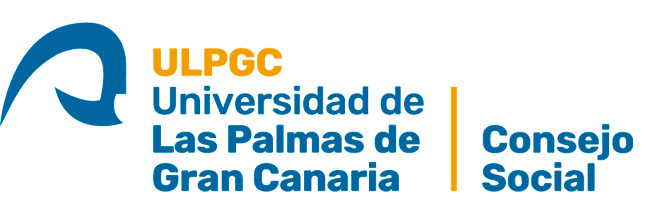The 1983 University Reform Act set out the creation of Social Councils as new social participation bodies within the university. Development of the specific regulations regarding this was devolved to the Spanish regions. In accordance with this, in 1984 the Canary Island’s Parliament passed the Social Councils in Island Universities Act and at the end of 1985 the first chairman of the Social Council of the Las Palmas Polytechnic University took up his post.
The implementation of the Social Councils was not without difficulty as, for the first time, social stakeholders came into direct contact with the the true state of affairs of universities which, at that time, were rather disengaged from the context within which they operated. However, the Canary Island Polytechnic University responded favourably to the creation of the new body and during its inauguration the then Rector Dr. Francisco Rubio Royo spoke on record of the university’s satisfaction at the inclusion of representation of social interests. He spoke eloquently on the subject, “the university is not owned by the university community, but rather is a genuine public service addressing the interests of the national community and specifically those of our region: the Canary Islands”.
Chairmen
The Social Council was formed on 25th May 1985, during the time of the Polytechnic University of Las Palmas, with the role of interim chairman (of the interim council) being held by Mr. Angel Pérez García, who was at that the representative of the Island Council of Tenerife. The role of secretary was held by Mr. Pedro Súarez Rodríguez, representing the university.
It was not until 25th October that year that Mr. José María Barrientos and Mr. Carlos Martí Ascanio were respectively appointed as chairman and secretary of the Social Council.
The second chairman of the Social Council was appointed in the plenary session held on 27th November 1986, the responsibility falling to Mr. Octavio Llinás González until 4th November 1993. During his chairmanship there were two secretaries, Mr. Wenceslao Berriel Martínez (until 23rd November 1990) and Mr. Antonio J. Garrocho (from 27th September 1991 to 21st April 1994).
The third chairman, Mr. Lizardo Martel Cárdenes, was appointed during the plenary session of 3rd February 1994 and he held this role until 27th March 1998.
During this period Mr. Ignacio Calvo Cruz was secretary (from 2nd April 1994 to 11th June 1998).
The last period under the aforementioned act [Ley Territorial 6/1984] was presided over by Mr. Domingo Bello Cabrera (appointed by the Social Council on 30th April 1998 and holding the role until 21st December 2003). At this time Mr. Miguel Ángel Acosta Rodríguez acted as secretary (a role he has held from 11th June 1998 to the present day).
Following the passing of the new act (Ley 11/2003 passed on 4th April of that year) Mr. Aureliano Francisco Santiago Castellano was appointed as chairman. He held this role until stepping down, at his own request, on 8th November 2005.
From that time, Mr. Lothar Simiens Hernández held the role of chairman, being appointed as such on 17th March 2011, having previously acted in an interim capacity. He held this role until standing down at the end of his term in office on 13th May 2015.
From this date the chairmanship was held by Mr. Ángel Tristán Pimienta, whose mandate ended on 30th April 2019. After taking up office on 8th May 2019 the chairman of the Social Council is Jesús León Lima, previously vice chairman. Mr. Miguel Ángel Acosta Rodríguez remains in his role as the council’s secretary.

Chairmen of the Social Council and Chancellors at Las Palmas de Gran Canaria University (1985-2014)
Identity
Since its creation the ULPGC Social Council has maintained the spirit on which it was founded, seeking to instigate collaboration between the university and institutional and social entities, with the aim of strengthening links and mutual commitments.
Since its formation the Social Council advocated for the polytechnic university to be awarded full university status, echoing the existing social demand and taking part in the broad citizen’s movement which was at the root of the creation of the University of Las Palmas de Gran Canaria.
From that moment, the Social Council has been defending the university, firstly by facing up to the difficulties generated by the university’s rapidly rising numbers and by subsequently supporting the policies seeking to bring about improved efficiency and quality.
It is in this context that the identity of the ULPGC’s Social Council has been shaped; moulded by the university’s social commitment and in the public’s interest in its development. This stems from the public awareness that it was the island’s society which believed in the university and fought for it until it became a reality, while subsequently having supported and continuing to support it with considerable effort.
This specific circumstance which unites and binds the university and society has remained steadfast, forming the foundations upon which the harmony existing between the Social Council and the different management teams leading the institution and the university community as a whole has been based. This characteristic has come to be a reference point for other Social Councils in universities across Spain.

